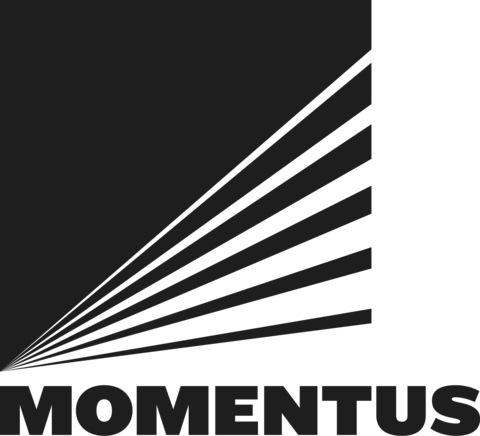Momentus Continues Testing of Sustainable Spacecraft Engine and New Type of Solar Array
Momentus Continues Testing of Sustainable Spacecraft Engine and New Type of Solar Array
SAN JOSE, Calif.--(BUSINESS WIRE)--Momentus Inc. (NASDAQ: MNTS) ("Momentus" or the "Company"), a U.S. commercial space company that offers satellite buses, transportation, and other in-space infrastructure services, continues to advance in-space testing of its Microwave Electrothermal Thruster (MET) and recently completed initial in-space testing of its Tape Spring Solar Array (TASSA).
MET Testing Continues with Dual-Thruster Firings
The MET is the Vigoride Orbital Service Vehicle’s (OSV) primary propulsion method that relies on solar power and uses water as a propellant. The Vigoride OSV has redundant systems to improve reliability, including two MET thrusters that can be operated independently. The Vigoride OSV will typically operate using one thruster, however, having two thrusters on the spacecraft enhances reliability and if additional thrust is needed to support faster movement of satellites over substantial distances or to new orbits, firing both thrusters enables the spacecraft to travel faster and farther. Momentus successfully completed the initial on-orbit testing sequence of the MET earlier this year and then paused testing to prioritize providing hosted payload services to Caltech for its Space Solar Power Demonstration program. MET testing is now continuing with advancement into dual thruster-firings.
“We’ve been building on our MET testing from earlier this year and have now performed multiple dual thruster firings, including firings up to the full duration planned for our near-term operational use cases of a five-minute-long dual thruster firing,” said Momentus Chief Technology Officer Rob Schwarz. “Dual thruster firings will enable more efficient orbit transfer times for customers. As of today, we have approximately 230 minutes of firing time on the MET between both thrusters. In total, we’ve executed approximately 6.5 km in orbital raises of the Vigoride OSV by firing the MET in single or dual-thruster firings.”
The MET technology has achieved firing times that are consistent with the operational times required for Momentus missions. Its non-toxic water propellant is intended to enable simpler, safer, and more cost-efficient operations preparing the spacecraft for launch on Earth and in operation in space.
“Momentus tailors the type of propulsion system we use to meet mission needs,” said Schwarz. “The MET technology maturation as demonstrated is ideal for servicing missions. The engine is also offered as one of several types of propulsion systems available for the Momentus M-1000 satellite bus.”
Initial In-Space TASSA Testing Complete
Momentus’ TASSA is a developmental payload onboard the Vigoride-6 OSV that utilizes flexible solar cell technology, allowing the solar array to be extended and retracted like a tape measure, using its concave shape to provide rigidity. Momentus was recently notified that its application was approved to issue the company a patent for technology behind TASSA.
TASSA is designed to be deployed and retracted on orbit numerous times, is configurable to varying lengths based on power requirements, and utilizes thin film solar cells that are radiation resistant and self-annealing. To date, the mission was able to demonstrate the majority of the major performance requirements, including boom yoke deployment, initial roll out deployment, thin film flexible solar cell power generation, low-cost slip ring performance, and retraction, providing confidence as well as identifying areas for improvement as Momentus continues development of this technology.
“This demonstration mission and the valuable data we collected gives us confidence in the mechanical and electrical components, as well as in the thin film solar cells on TASSA,” said Schwarz. “Like most demo missions, we learned a great deal by operating the system on-orbit over an extended period, which is a big step forward. We look forward to improving the design and flying future TASSA demonstrations. With TASSA we aim to provide power to the spacecraft at less than 50% of the cost of currently available solar arrays on the market.”
Once TASSA is fully flight qualified, Momentus estimates that replacing Vigoride's current solar array with TASSA will substantially reduce the overall recurring production cost of its spacecraft.
Since August, Momentus has signed six commercial contracts and raised more than $16 million in gross proceeds. The Company is currently booking customers for 2024 missions. Email sales@momentus.space to start the reservation process.
About Momentus
Momentus is a U.S. commercial space company that offers satellite buses and in-space infrastructure services including transportation, hosted payloads, and other in-orbit services.
Forward-Looking Statements
This press release contains certain statements which may constitute “forward-looking statements” for purposes of the federal securities laws. Forward-looking statements include, but are not limited to, statements regarding Momentus or its management team’s expectations, hopes, beliefs, intentions or strategies regarding the future, projections, forecasts or other characterizations of future events or circumstances, including any underlying assumptions, and are not guarantees of future performance. Because forward-looking statements relate to the future, they are subject to inherent uncertainties, risks and changes in circumstances that are difficult to predict and many of which are outside of Momentus’ control. Many factors could cause actual future events to differ materially from the forward-looking statements in this press release, including but not limited to risks and uncertainties included under the heading “Risk Factors” in the Annual Report on Form 10-K filed by the Company on March 8, 2023, as such factors may be updated from time to time in our other filings with the Securities and Exchange Commission (the “SEC”), accessible on the SEC’s website at www.sec.gov and the Investor Relations section of our website at investors.momentus.space. Forward-looking statements speak only as of the date they are made. Readers are cautioned not to put undue reliance on forward-looking statements, and, except as required by law, the Company assumes no obligation and does not intend to update or revise these forward-looking statements, whether as a result of new information, future events, or otherwise.
Contacts
Media: press@momentus.space
Investors: investors@momentus.space
